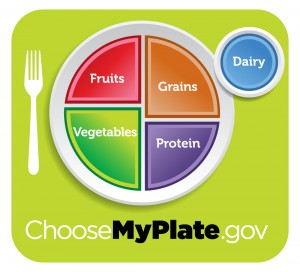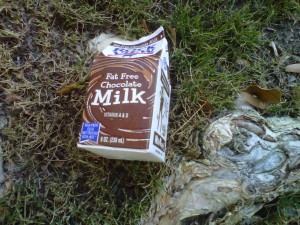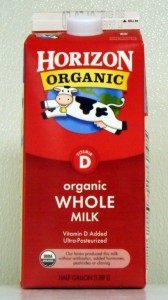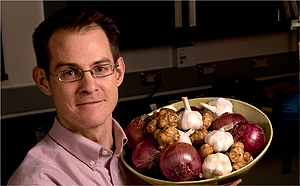Jeff Volek is the coauthor of the best-selling book, The New Atkins for a New You. He’s also the co-author of two more recent books, with Steve Phinney, The Art and Science of Low Carbohydrate Living, and The Art and Science of Low Carbohydrate Performance. In addition, Jeff’s a professor at the University of Connecticutt. He’s focused his career on studying low carb diets, not just for weight loss, but as a lifestyle choice that may improve the health of people who suffer from diabetes and heart disease. And he’s a weight-lifter. For more, here’s part 1 of a 2-part interview with Jeff Volek.
Jeff Volek, who are you?
JEFF VOLEK
I’m a professor at the University of Connecticut where I study nutrition and exercise research.
If I were to do an arm wrestling match with you right now, who do you think would win?
JEFF VOLEK
Well I have bad elbows from arm wrestling my brother when I was young, so I think it would be a close battle.
I’m surprised to hear you say that, because, how many pounds can you lift?
JEFF VOLEK
I used to be stronger, but I still try to be strong. I’m a power lifter at heart. I used to compete over a decade ago and I have several meets under my belt. Now I’m 43 years old and I’m suffering from a lot of the collateral damage from lifting too heavy of weights. I still enjoy going to the gym and trying to out-lift the young guys there.
What does that mean? How much weight can you lift?
JEFF VOLEK
I’m not not so into lifting heavyweights anymore, but I still can squat probably 500 pounds and dead-lift close to 500 pounds, if I’m warmed up enough to have all the kinks worked out.
Well, Jeff Volek, there’s so much talk about whether exercise or how we eat or how many calories we eat or what kind of food we eat is what makes the biggest difference in health. In a way, you’ve been in all these worlds, by looking at exercise and whether calories in, calories out makes a difference, and you’ve done research into what kind of calories – fat, protein and carbohydrate.
JEFF VOLEK
I have been interested in diet for a long time, and I came upon low carbohydrate diets fairly early on in my research career, and my initial interest was more in the clinical application of diet in terms of weight loss and risk for diabetes and heart disease. However I’ve also had had a passion for sports performance, so I kind of live in these two worlds of the clinical application of diet and also of the sport performance of diet and the health aspects, and well-being aspects of diet. Now more than ever, over the last decade I’ve sensed these two worlds colliding, because in both of those worlds we’ve advocated high carbohydrate diets and low-fat diets as being ideal.
Who is we?
JEFF VOLEK
I guess we is the the mainstream consensus, the dietary guidelines. It’s the dietary recommendations. But you have to realize, in the sports world, we have the high carbohydrate paradigm, high carbohydrate loading has been around for just as long as the dietary guidelines have been around. So I guess in many ways they reinforce each other. What our researcher is showing is, maybe that’s not quite as straightforward as we thought it was.
Did you start out thinking that a high carb diet is the best way to go?
JEFF VOLEK
I’m a trained dietitian. My undergraduate degree was in dietetics, so I recognize myself as a dietitian first, and of course I’ve gone on and studied nutrition at a higher level than most dietitians. But as a dietician, I was indoctrinated with this low-fat paradigm.
That’s a harsh term — indoctrination means that it was pushed into your brain as opposed to being a scientific exploration. That’s a loaded term. Did you choose that on purpose or not?
JEFF VOLEK
The curriculum in dietetics is very much focused on low-fat diets.
I think that most dietitians would say that the curriculum focuses on low-fat diets because it’s the better way to eat and it’s obviously more scientifically correct and it’s not indoctrination. It’s just the best way to go.
JEFF VOLEK
That’s what’s presented, and until you challenge the dogma really — it’s at the point I would characterize it as a dogma, that humans have evolved to adapt to low-fat diets and that’s the best diet for weight loss, and it’s the best diet for disease prevention and overall health. Until you challenge that at a higher level, which I think requires at least graduate level education . . .
Now Jeff Volek, some of the best minds in the country will respond that really when it comes to weight loss and maintenance what matters is how many calories you take in versus how many calories you burn. So, for instance, what if you have some skim milk that you’ve flavored with chocolate and sugar, to make it more palatable for kids. And what if you have the same amount of whole fat milk that has no sugar in it, and it’s made more palatable because it has high-fat. The higher calorie of those two choices will be the whole milk, and if you follow calories-in, calories out as your guide, then definitely you should avoid having kids drink the unsweetened, higher fat whole milk, and instead have kids drink the sweetened, chocolate flavored skim milk. After all, sugar-flavored skim milk has fewer calories than whole milk. There are great scientist who will say it’s calories in calories – calories out that matter.
JEFF VOLEK
I’m not so sure I would argue with calories in calories out as far as weight loss. But clearly the type of calories you consume affects your metabolism in very complex ways. So just focusing on low-fat foods is certainly a way to consume fewer calories at that meal. But does it affect your appetite? Does it affect your satiety and your satisfaction? Yes of course!
So when you say metabolism, you mean things such as appetite, and whether you’re hungry or not. Whether or not you have energy after you eat a meal and during the day.
JEFF VOLEK
Absolutely. And consuming that low-fat milk may allow for fewer calories to be consumed at that meal. But what happens one hour later when children get hungry and those kids are seeking out snacks and other high carbohydrate meals to satisfy that craving they have. It’s a fuel crisis they’re having because their blood sugar is low. If they would’ve chosen the whole fat milk, it has a few more calories, but more fat calories and fewer carbs, so they would’ve been more satiated and had less fluctuation in their blood sugar and insulin levels and likely would consume less calories over the entire day.
I gather that you’re explaining the journey you took from advocating high carbohydrate diets to low carbohydrate diets.
JEFF VOLEK
Well, I followed what I believed, during my training in dietetics and I think it was in 1991, I had graduated from dietetics and obtained my registered dietitian status. That’s when I decided to read the Atkins book. Dr. Atkins’ book, and at that time I was following a very low-fat diet.
Did that work for you, a low fat diet?
JEFF VOLEK
I never really felt that great on a low-fat, high-carb diet. I’ve never had a weight problem, but I never felt like I had a lot of energy and I always felt all the fiber I was eating was not agreeing with my gastrointestinal system. I had a lot of GI symptoms at the time. So I said what the heck! I’ll try the Atkins diet. And it was nothing short of an epiphany.
(This is part 1 of a 2-part interview)











Vegans could use avocados, high oleic safflower oil and coconut oil for sources of fat to replace the calories from carbs. Vegetable oils are not usually recommended, but Volek seems ok with the HOSO I mentioned. You could use nuts to create mock meats. You could also use animal products to get you to your goal weight and then eat more vegan.
I have been successful with fruit, nuts, seeds and greens as a vegan before and now with an animal based cyclical ketogenic diet. Greens, nuts, cheeses, avocado, eggs bacon etc. Lost muscle as a vegan where I find the CKD actually spares muscle mass.
Vegan, low carb is more challenging, but there are reports of it being doable. There might be some recipes that can be adapted for Vegans on the facebook page The Vegetarian Low Carb Diabetic Healthy Diet Society
I was impressed by Jeff’s video on Ketosis and Low Carbs. I have been a vegan for several months with a question. How can I adhere to those dietary changes as a vegan? I am 62, overweight and would like to lose weight and be in the best health possible to avoid diseases of aging. Thank you. Regards, Beverly
If more people would read Jeff Volek’s book’s, we could derail the obesity and diabetes train that is bankrupting America.
You’re very welcome. Thanks for checking in!
Dear Shelley,
Thanx for the great interviews with Jeff Volek. I’m willing to buy his books asap
Kind regards,
Norman
The Netherlands